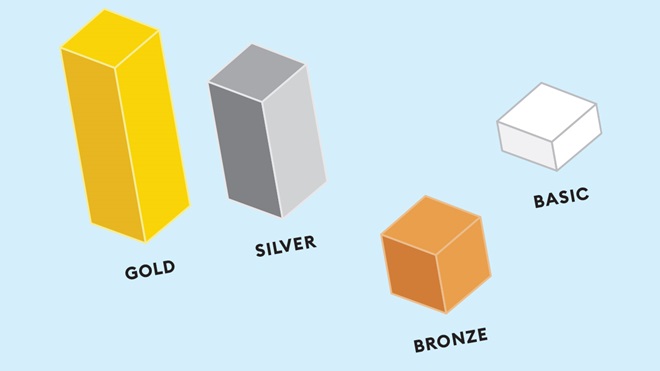Need to know
- Some Bronze hospital insurance policies cost more but provide less cover than some Silver policies
- COVID-19 means many people are experiencing financial hardship – now's the time to dump these overpriced policies and switch for better value cover
- Health funds including GMHBA, AHM, Australian Unity and NIB have overpriced Bronze policies
We've found 73 Bronze and Bronze Plus hospital insurance policies that cost more and provide less cover than some Silver policies. Insurance premiums went up in April, but you can compare health insurance at any time to make sure you're getting the best value and cover.
Bronze vs Silver
Bronze policies give you basic cover for broken bones, diabetes treatment (except insulin pumps) and breast and prostate cancer surgery, as well as radiation and chemotherapy.
They provide a reasonable level of cover for young and healthy people, and usually cost less than Silver or Gold policies which provide cover for more treatments.
A Silver policy will cover you for the same as Bronze, with a number of important additional treatments, including heart disease, lung or blood cancer (such as leukemia), and medically necessary plastic surgery, for example after a burn or cancer treatment.
But we've found some Bronze hospital policies that cost more than some Silver policies. So instead of making a saving, you're paying more, for less cover.
Beware of these rip-off policies
These two rip-off Bronze policies are more expensive than at least one Silver policy in all states.
- Frank (GMHBA) Better (Bronze+), $750 excess
- Phoenix Bronze Plus Care, $500 and $750 excess levels
And there are plenty more rip-off Bronze policies in each state, as you can see in our table below. If you have one of these, it makes sense to dump it for a cheaper policy.
Why are Bronze policies more expensive than Silver?
When the government introduced health insurance reforms in 2019, they tried to make health insurance simpler by introducing four different tiers for hospital insurance:
- Gold – full or top health insurance cover in a private hospital
- Silver – medium cover
- Bronze – low cover
- Basic – very little cover, if any.
As every policy in the same tier has essentially the same cover, this should, in theory, make it easy to compare policies.
But then the government allowed health insurers to introduce some "in-between" policies, called Plus policies.
What are Plus policies?
Silver Plus, Bronze Plus and Basic Plus policies cover at least one service more than normal Silver, Bronze or Basic policies.
But, while Plus policies allow you to tailor your health insurance, they also make it much harder to compare policies.
For example, a Bronze Plus policy could include cover for lung-cancer surgery and dental surgery – such as wisdom teeth removal in hospital. These are services that would be useful for many people and are normally only covered under Silver policies.
Another Bronze Plus policy might exclude those things, but cover Cochlear implants, which is also covered by Silver policies, but only useful for a few people.
What is Bronze health insurance?
Bronze health insurance is a lower level of hospital insurance, covering 18 categories of services in a private hospital.
What's covered by Bronze health insurance?
- Breast, skin and prostate cancer surgery (including breast reconstruction) plus chemotherapy and radiation
- Broken bones and other bone, joint and muscle treatments including joint reconstructions (but not replacements)
- Ear, nose and throat surgery including tonsils, adenoids and grommets
- Diabetes management in hospital (but not implanted insulin pumps)
- Endoscopy and colonoscopy plus other digestive system procedures including removal of gallstones or haemorrhoids
- Gynaecology, miscarriage and termination of pregnancy, sterilisation (male and female) but not pregnancy and birth
- Brain and nervous system treatments including for stroke, epilepsy and Parkinson's disease
- Hernia and appendix surgery
- Skin-related procedures including treatments for lesions and abscesses, and allergy skin-prick testing
- Palliative care, rehabilitation and psychiatric care (in a public hospital only)
We're on your side
In more than 60 years of making a difference for Australian consumers, we've never taken ads or sponsorship.
Instead we're funded by members who value expert reviews and independent product testing.
With no self-interest behind our advice, you don't just buy smarter, you get the answers that you need.
You know without hesitation what's safe for you and your family.
And you'll never be alone when something goes wrong or a business treats you unfairly.
Learn more about CHOICE membership today
Stock images: Getty, unless otherwise stated.



